To summarize the scandal, Lori Loughlin, who played Rebecca Donaldson-Katsopolis on the classic ABC sitcom Full House and the Netflix sequel Fuller House, and starred in the Hallmark's When the Heart Calls, was one of fifty people implicated in the admissions scandal that also netted actress Felicity Huffman, known for her role in ABC’s Desperate Housewives. The mastermind of the manipulation was Rick Singer, CEO of The Key, which promised to help “the wealthiest families in the US” get their children into some of the country’s most prestigious colleges.
Many tutors, SAT prep courses, and other admissions aids honestly and legally help students improve their chances of acceptance to their preferred colleges. So, how did Singer run afoul of the law? He allegedly helped his clients’ children cheat on ACT and SAT tests, and he bribed college athletic department personnel so they would claim that certain students were recruits for their teams, even when some never played the sport in question.
However, perhaps the most devious thing Singer did was create “The Key Worldwide Foundation,” which was supposedly a charity that funded programs for underprivileged children in the U.S. and abroad. In reality, the Foundation served as a front for money-laundering, or a way for the wealthy to pay Singer who then channeled bribes to accomplices on college campus that included USC, Yale, and New York University, among other prestigious schools.
As someone who works in higher education, has one child who recently graduated from college, and has another who is currently making his college decision, the admissions scandal hit close to home. However, the scandal is even more unsettling to me as a marketer.
No, I’m not just talking about what Singer did. His bad decisions to build a business based on cheating and bribery and to operate a fake foundation were certainly appalling and surprising. What was even more amazing to me was the apparent ease in which he secured willing parties to the schemes, not just from the general population but from those representing high society and higher education—people who stereotypically ‘should know better.’
In addition to accomplished actresses Loughlin and Huffman, alleged scandal participants include an array of elite professionals from business, academia, and other fields. Some of the specific individuals implicated, along with their current or former positions, are:
- Rudolph Meredith, head women’s soccer coach at Yale University
- John Vandemoer, sailing coach at Stanford University
- Igor Dvorskiy, director of West Hollywood College Preparatory School
- Gordon Ernst, head tennis coach at Georgetown
- Donna Heinel, a senior associate athletic director at USC
- Jorge Salcedo, the head coach of UCLA men’s soccer
- Gordon Caplan, New York attorney and co-chairman of the law firm Willkie Farr & Gallagher
- Gregory Colburn, a radiation oncologist in Palo Alto
- Robert Flaxman, chief executive and co-founder of Crown Realty & Development, and a Beverly Hills resident
- Homayoun Zadeh, associate professor at USC’s Herman Ostrow School of Dentistry and director of the school’s Advanced Program in Periodontology
Why would so many smart and talented people risk their reputations and/or careers to associate with Singer. The motives were likely mixed. Of course, many of the participants were parents who may have been willing to do anything to see their children succeed. Those who accepted bribes, probably wanted the money. Some may have felt pressure to assist for the good of their institution. Maybe some saw or heard of others doing similar things and rationalized ‘there’s safety in numbers.’
Whatever the motive, I doubt that many of the participants, if any, seriously thought that they would get caught. If they did, they probably wouldn’t have participated. Instead, they operated under the delusion that what could be hidden from public view didn’t matter.
That misconception is one of the biggest fallacies of marketing, in general, and personal branding, specifically. In an article I wrote a couple of years ago, I aimed to debunk that myth by suggesting that a personal brand consists of three elements: character, competencies, and communication. I likened the first two components to the layers of a cake and the last one to its icing.
Some individuals erroneously act as if they can overcome flawed character and inferior skills by spreading on a thick layer of overly flattering or even disingenuous communication. Besides being dishonest, this approach only works for so long. Eventually cracks in ‘the cake’ show through the communication. Unfortunately for them and others impacted by their indiscretions, those involved in the college admissions scandal seemed to subscribe to this hollow approach to personal branding.
As I was writing this blog post, my wife shared with me some very sad news. A good friend of ours from early in our marriage had passed away suddenly at home, at the age of 58. Mark Sneff was someone who built his personal brand the right way. Even as he developed his competencies to rise to the top of the HR profession, his character exuded integrity. Mark also was uniquely gifted at communicating “the truth in love”: He could offer an honest critique that felt like a high compliment.
As the outpouring of fond remembrances on his LinkedIn page suggests, Mark was a widely loved individual who many held in high regard. I’m not sure he thought much about personal branding. I am very confident, though, that he never would have resorted to a ruse to advance the educations or careers of his two children, who he loved greatly. Interestingly, Mark was the first person I ever invited to speak to my college classes.
It’s so nice to know people who ‘market themselves’ the right way. The recent college admissions scandal should be a reminder that it only take a moment to destroy a personal brand that took decades to build. Unfortunately, that fact means that Loughlin and all who participated in Singer’s schemes, not only injured themselves and others, they’re also guilty of “Mindless Marketing.”
Learn more about the Mindful Matrix and Mindful Meter.
Check out Mindful Marketing Ads and Vote your Mind!

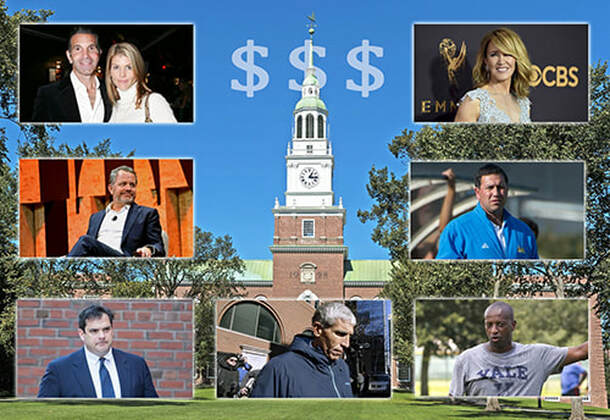
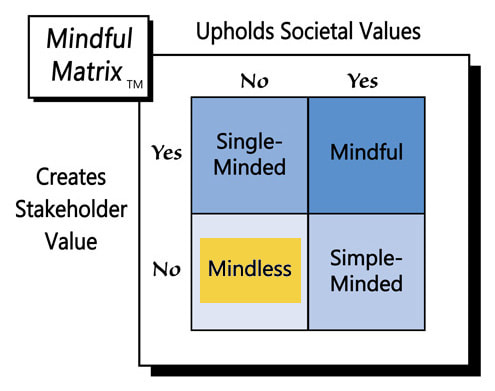
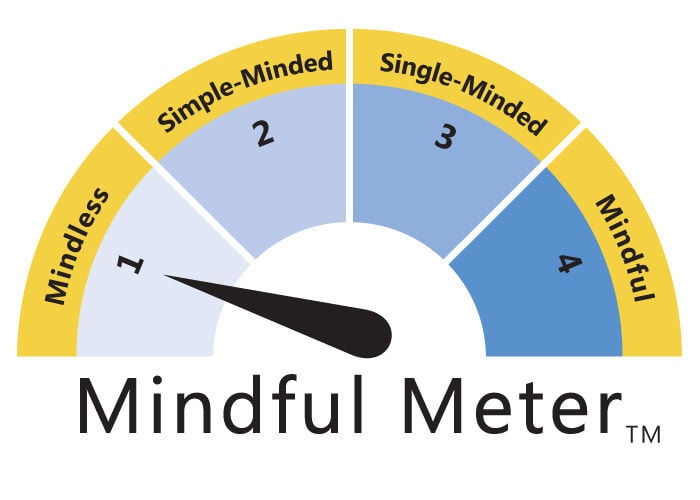
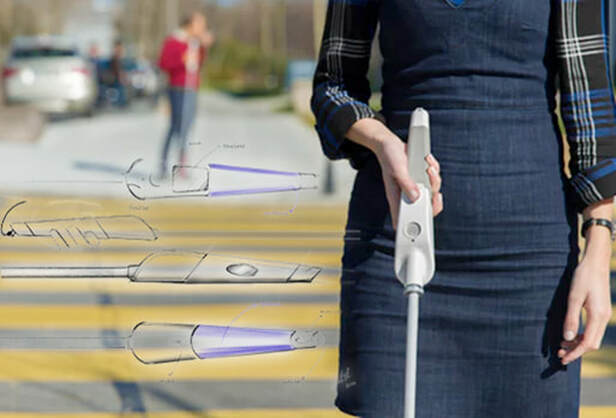
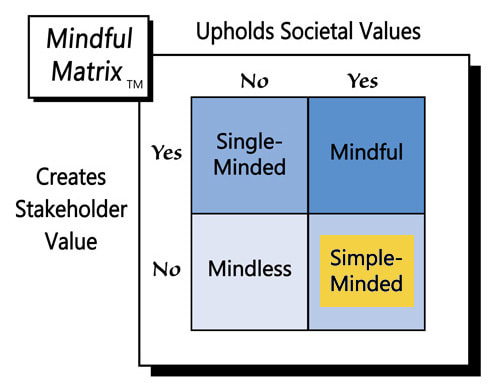
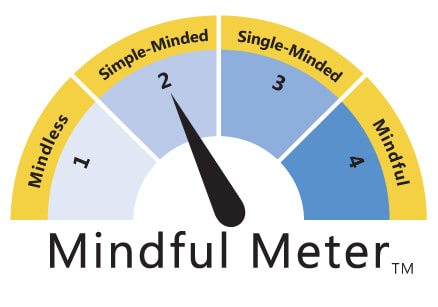
 RSS Feed
RSS Feed